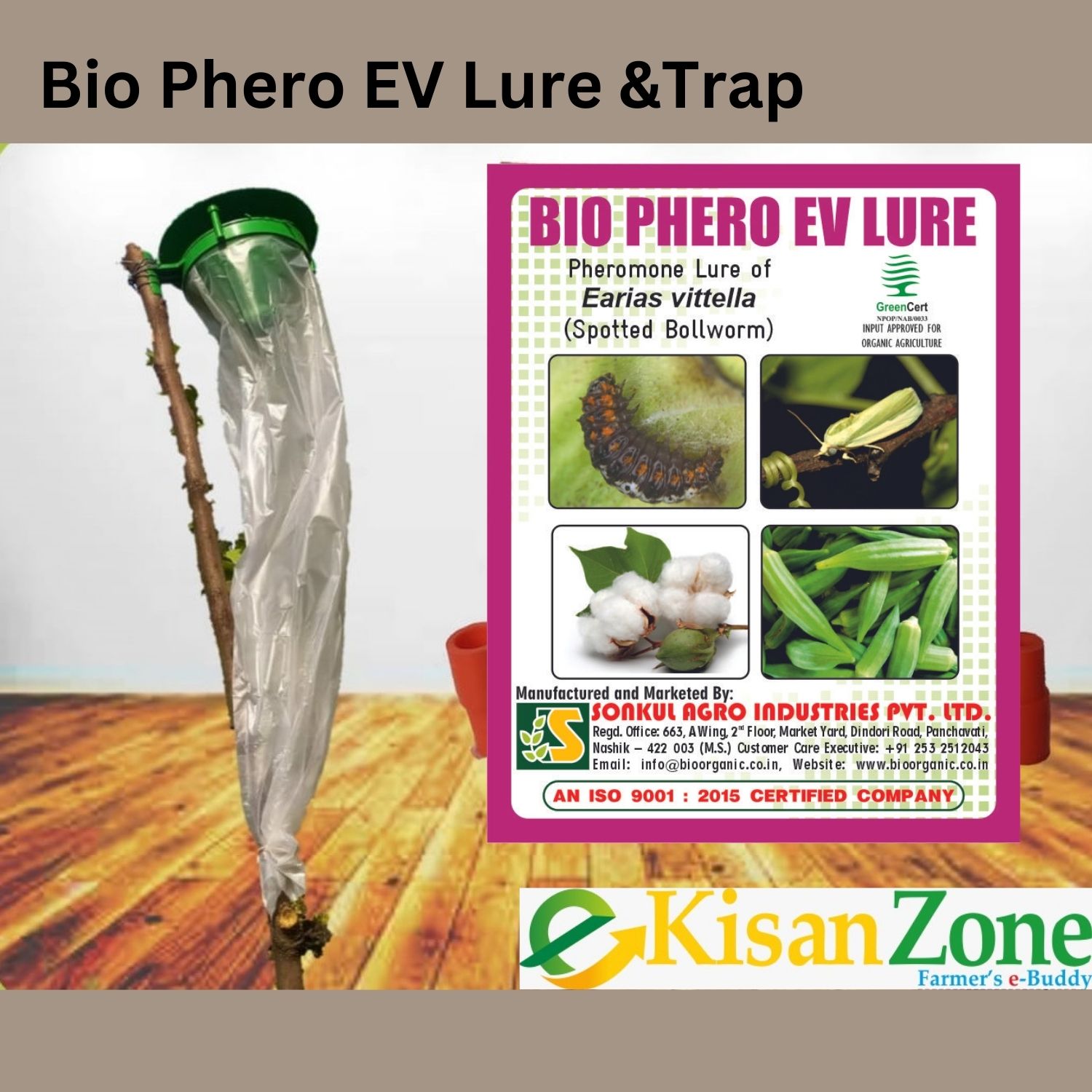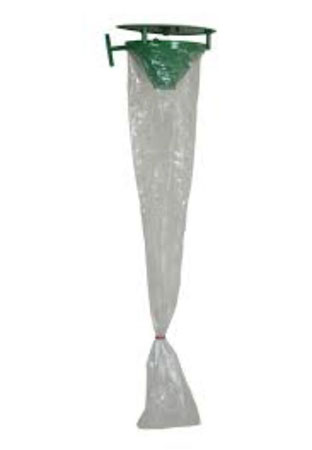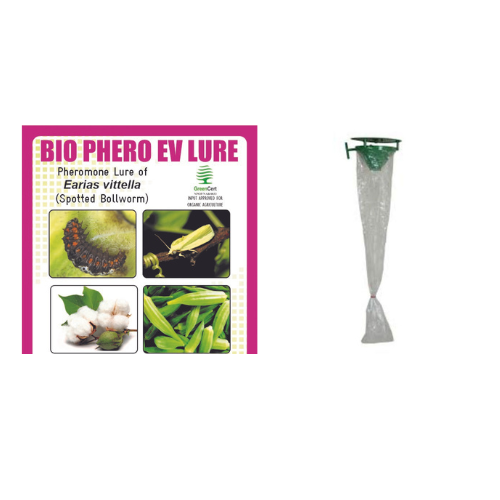




SONKUL AGRO INDUSTRIES PRIVATE LIMITED
Lure With Trap
Pheromone lure for spotted bollworm (Earias vitella)
Target Plants: Cotton, Okra, etc.
Usage Instruction-Cut opens this pack and slides the lure piece outside. Do not touch the lure with bare hands. Fix this lure properly in a trap by sliding it into the hole provided in the funnel trap.
Replace the lure at the recommended duration. Wash hands thoroughly before and after handling the trap and lure. Discard used lure by burning or burying underground.
Trap to be used: Funnel Trap
Number of traps per Acre: 7-8
Life of Lure: 60 Days
Contents: One pheromone lure of Earias vitella
Identification-Larva is Brownish with white streaks dorsally and pale yellow ventrally, without finger-shaped processes. The adult has pea-green forewings with a wedge-shaped white band running from base to out margin.
Life Cycle-Oviposition takes place in the night, female deposits 2-3 eggs on the leaf bract, flower bud, or tender leaf, usually on the undersurface. Fecundity is 200-400 eggs per female.
Eggs are deep sky blue or greenish crowned and sculpted on the surface. The incubation period is 3-5 days. The full-grown larva is about 2 cm long, brownish with white patches on the dorsal side of the body.
There are 6 larval instars and the total larval development takes 12-18 days. Pupation takes place on the plant or rarely in the soil among fallen leaves. A boat-shaped grayish silken cocoon is constructed for pupa formation.
Nature of Damage- Young larvae attack growing shoots leading to drooping and withering of the top shoot. In later stages buds, flowers, and bolls are also damaged. Flower buds open up prematurely causing “flared squares”.
In damaged bolls, the pulp is eaten up and lint is stained. The attack on okra follows a similar pattern to that of cotton. Terminal shoots are bored initially, with attack moving to flower buds and fruit as they appear.
In severe tunneling the top leaves wilt and the whole apex of the plant droops, hampering further growth. Secondary branching may occasionally occur.
When fruiting starts, larvae move to flower buds, tiny fruits, and eventually the mature pods. The severe attack causes the shedding of flower buds and reduced yield.
When attacking the fruit, the larvae feed on the milky seeds and other contents of the pod, leaving excrement-filled tunnels. Target PlantsCotton, Okra, etc.
Usage Instruction-Cut opens this pack and slides the lure piece outside. Do not touch the lure with bare hands. Fix this lure properly in a trap by sliding it into the hole provided in the funnel trap.
Replace the lure at the recommended duration. Wash hands thoroughly before and after handling the trap and lure. Discard used lure by burning or burying underground.
Trap to be used: Funnel Trap
Number of traps per Acre: 7-8
Life of Lure: 60 Days